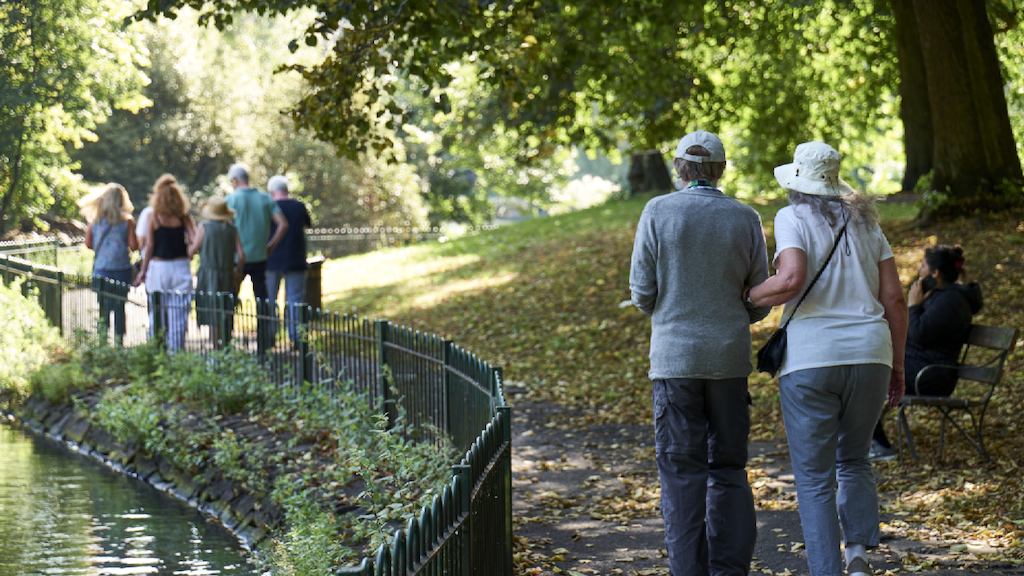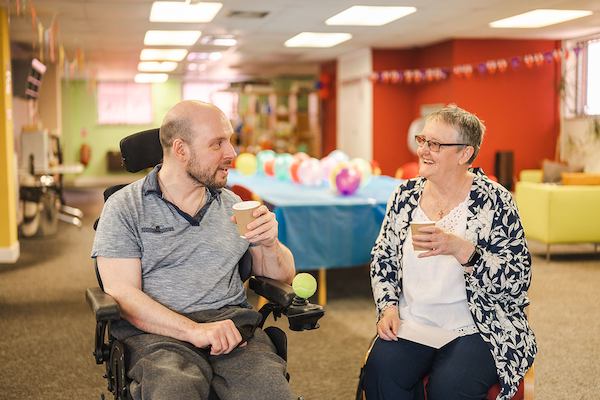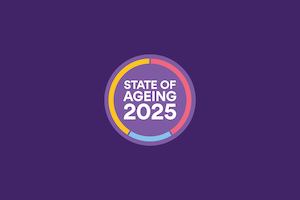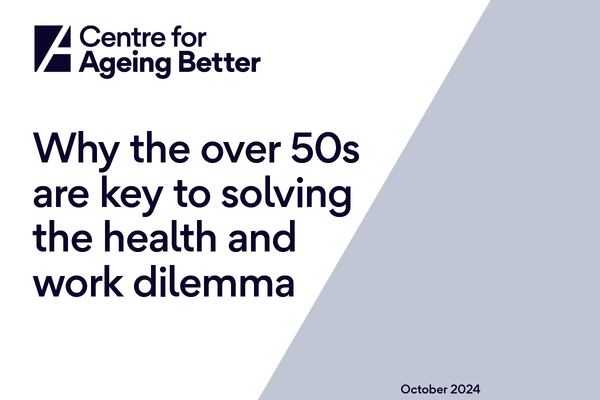Government needs the 50+ population to deliver its mission as Chancellor delivers her first Budget

Today Chancellor Rachel Reeves set out a historic Budget, the first ever delivered by a woman, which will increase taxes by £40 billion as she promised to “fix the foundations” of the economy.
Ageing Better has been analysing the key policy announcements and what they mean for our older population.
Chancellor Rachel Reeves has delivered Labour’s first Budget since 2010, after the party’s return to power in July’s general election.
Among the key announcements, the Chancellor confirmed that the cap on single bus fares in England will continue but will rise from £2 to £3 from January – an increase of 50%.
The government is also committing an initial £3.4 billion to their Warm Homes Plan which will be spent on improving heat decarbonisation and household energy efficiency over the next three years.
This funding includes £1.8 billion to support fuel poverty schemes, helping over 225,000 households reduce their energy bills by over £200. The government had previously announced reforms to the Winter Fuel Payments scheme which will no longer be a universal benefit for pensioners and will be available to only a small percentage on the lowest incomes.
The government is adding £500 million to the Affordable Homes Programme to kickstart the biggest increase to social and affordable housebuilding in a generation as part of their commitment to building 1.5 million homes over this Parliament.
As part of the soon-to-be-published Get Britain Working White Paper, the government is investing £240 million to trial new ways of getting people back into work. This funding will be used to test new approaches and collect robust evidence on how to tackle the root causes of ill-health related inactivity, support young people who are ‘not in education, employment or training’ (NEET), and help people to develop their careers.
The Budget will also boost capital investment by over £100 billion over the next five years, including in transport, housing and research and development (R&D). Increases in capital investment in public services include almost £4 billion to increase capacity in the NHS, £1.4 billion to help rebuild schools, £1.2 billion to deliver extra prison places, and almost £1.6 billion in local roads maintenance.
The government will also support local authority services through a real terms increase in core local government spending power of around 3.2% alongside an £86 million increase to the Disabled Facilities Grant to support 7,800 more adaptations to homes for those with social care needs.
Dr Carole Easton OBE, Chief Executive at the Centre for Ageing Better, said:
“Amid the spending cuts and tax rises of this Budget, it is vital that this government holds true to their missions and their long-term vision. We need this government to consider the 50+ age group in all its areas if it wants to grow the economy, reduce pressures on public services and lower the numbers of people ageing in poverty, damaging their health in dangerous housing and unable to access essential services.
“Funding to tackle economic inactivity by reaching people not usually in touch with the employment support system is welcome and desperately needed, particularly for 50-65-year-olds who account for half of the economically inactive due to long-term illness or disability in this country.
“But if this funding is to help the government hit their ambitious target of 80% employment rate, the country needs to see a significant increase in employment rates for two age groups: 18-24s and 50-64s. Plans are already underway for a Youth Guarantee. Now we need a similar ambition to drive up the employment rate at the older end of the labour market, with much higher service standards for 50+ jobseekers, and innovation funds to support service providers to achieve them. The scale of capital investment announced in this Budget will require people to deliver it, that means the retention of the skills and experience of older workers who are key to the construction sector is essential.
“The benefits of closing the employment gap between 50+ workers and other age groups is clear; it would contribute towards a £9bn annual boost to the economy. The consequences of failing to do so are also clear; people in their 60s already have the highest rates of poverty of any adult age group, and their numbers are set to swell when the state pension age rises to 67 by the end of this Parliament.
“The Autumn Statement brings welcome news of funding which could help deliver a sizeable amount of desperately needed new social and affordable housing. We have to make sure that these homes are the right kind of homes that can support residents of all ages; we need these homes to be built to high levels of accessibility and not exacerbate the ongoing crisis of poor-quality housing.
“We welcome the significant funding announced for the Warm Homes Plan announced in this Budget. The consequences for the eight million people, 2.6 million of whom are aged 55 and over, currently living in homes that are cold, as well as homes that need repair or have serious hazards, can be deadly and incur huge and unnecessary annual costs for the NHS and care sector.
“As well as committing more funding to support the NHS, the government needs to look more long-term at preventative measures to lower demand. Developing a national strategy to fix cold and dangerous homes across all tenures would help to significantly reduce pressures. This strategy must be backed by sufficient, long-term funding and include a mechanism for delivery at the local level, such as Good Home Hubs which would allow people to access trustworthy support guiding them through their home improvement needs and solutions.
“We welcome the announcement of increased spend on Disabled Facilities Grants, a lifeline for many low-income, disabled, older people. These essential grants provide aids and adaptions that enable people to continue daily activities such a moving around the house and getting out and about. With an ageing population, more grant funding is essential to keep up with demand.
“It is disappointing that this Autumn Statement brings with it a 50% increase in bus fares. For those older people not yet eligible for a free bus pass, increasing the barriers to accessing public transport leaves them at risk of not being able to access services and amenities they need, including health services, as well as job seekers and workers in their 50s and early 60s who are key to drive economic growth.
“We can only hope that Labour makes good on its manifesto promises to fix the broken system of bus transport to give local areas greater control over bus routes and schedules. But even then, increased frequency might not be as valuable to many would-be passengers if they find the costs of using new routes and services too prohibitive.”













